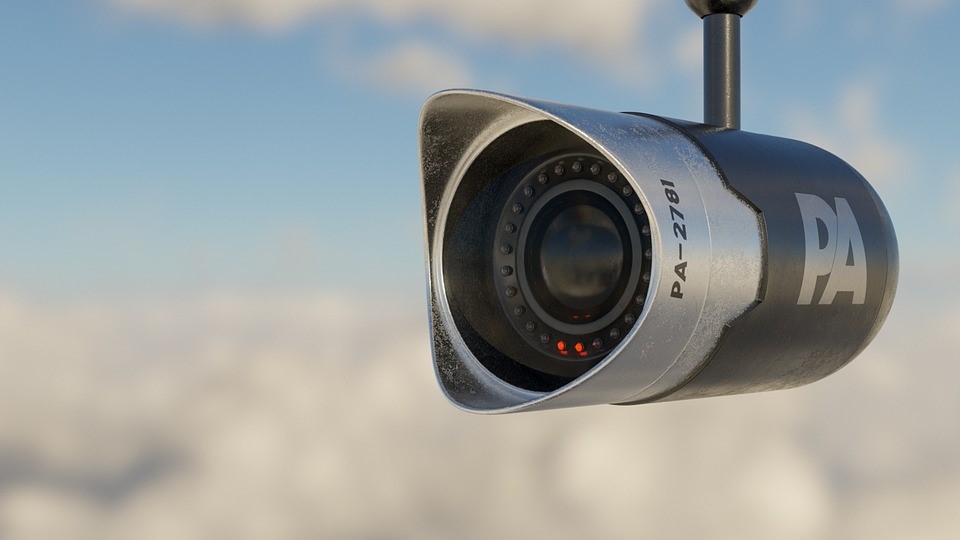
Home and business security is of utmost importance, and in Dubai, a rapidly growing city, ensuring the safety of your property is crucial. One effective way to enhance security is by installing a CCTV camera system. CCTV, or Closed-Circuit Television, provides real-time monitoring and recording of activities in and around your property. In this article, we will guide you on how to choose the right CCTV camera installation system for your Dubai property, considering various factors such as your specific needs, camera types, installation considerations, and more.
First Understand your Needs of CCTV Camera Installation
Before diving into the technical aspects of CCTV camera systems, it's essential to assess your security requirements. Determine the areas you want to monitor, whether it's the exterior, interior, or both. Consider the size and layout of your property, as larger properties may require multiple cameras for adequate coverage. Identifying potential security vulnerabilities will help you choose the right system.
What Are the Different Types of CCTV Cameras in Dubai?
When selecting a CCTV camera, you'll come across different types, each suitable for specific scenarios. Analog cameras are the traditional option, while IP cameras offer advanced features and higher resolution. Dome cameras are discreet and blend well with surroundings, while bullet cameras are more visible and act as deterrents. Pan-Tilt-Zoom (PTZ) cameras provide flexibility in adjusting the camera's direction.
Look for the Best CCTV Camera Specifications in Dubai
When selecting a CCTV camera installation for your Dubai property, paying attention to the camera's specifications is crucial in ensuring the quality and effectiveness of your surveillance system. The resolution of the CCTV camera is an important factor to consider. Higher resolution cameras provide sharper and more detailed images, allowing for better identification and recognition of individuals or objects captured in the footage.
Another key consideration is the lens type and the camera's field of view. The lens determines the level of zoom and the angle of view. Different lens types, such as fixed, varifocal, or zoom lenses, offer varying capabilities in adjusting the focal length and viewing angle. Assessing the field of view is essential to determine the area that the camera can cover effectively. Wide-angle lenses capture a broader view, while narrower lenses are more suitable for focusing on specific points of interest.
In low-light conditions, having night vision capabilities becomes crucial for maintaining clear and usable footage. Look for CCTV cameras that come equipped with infrared (IR) or low-light imaging technology. These features allow the camera to capture images even in complete darkness or poorly lit environments, providing reliable surveillance round the clock.
For outdoor surveillance, weatherproofing is a vital consideration. Dubai's climate can be harsh, with high temperatures, humidity, and occasional sandstorms. Ensure that the CCTV camera you choose has a suitable weatherproof rating to withstand these conditions. Look for cameras with an IP (Ingress Protection) rating, indicating their resistance to dust and water intrusion.
By carefully considering these specifications when selecting a CCTV camera for your Dubai property, you can ensure that your surveillance system meets your specific needs, provides clear and detailed footage, and withstands the environmental challenges it may face.
Check for Recording and Storage Capacity
• CCTV camera systems rely on recording and storage devices.• Digital Video Recorders (DVRs) and Network Video Recorders (NVRs) are commonly used for this purpose.
• DVRs are suitable for analog cameras, while NVRs work with IP cameras.
• Analog cameras transmit video signals in analog format, which are converted and recorded by the DVR.
• IP cameras capture and transmit digital video directly to the NVR, eliminating the need for conversion.
• Consider the storage capacity and retention period required for your property.
• Higher resolution cameras and longer retention periods require more storage space.
• Determine the storage capacity based on factors such as the number of cameras, their resolution, and frame rate.
• Consult with a professional CCTV installer to assess your specific requirements and recommend a suitable storage solution.
• Regularly review and manage your storage capacity to ensure uninterrupted recording.
• Some CCTV systems offer features like overwrite or loop recording to automatically replace the oldest footage when the storage is full.
• Selecting the appropriate recording and storage devices ensures reliable and efficient surveillance for your Dubai property.
Check for the Surveillance Software
• Modern CCTV camera systems come with surveillance software.• Surveillance software enables monitoring, playback, and remote access.
• Look for systems with user-friendly interfaces and mobile apps for easy navigation and access.
• User-friendly interfaces ensure a smooth and efficient monitoring experience.
• Mobile apps provide convenient access to live footage and recordings from smartphones or tablets.
• Remote access allows monitoring your property from anywhere with an internet connection.
• Stay connected to your CCTV system even when you're away from the property.
• Remote access enhances convenience and provides peace of mind.
• View live footage, review recorded videos, and control camera features remotely.
• Promptly respond to security events or incidents, even when not physically present.
• Consider surveillance software features when evaluating CCTV camera systems.
• Choose systems with user-friendly interfaces and mobile apps for enhanced convenience and flexibility.
Integration with Other Systems
For comprehensive security, consider integrating your CCTV camera system with other security systems, such as alarm systems and access control system in Dubai. This integration enables a synchronized response to security events and provides a holistic approach to property security. Additionally, explore the compatibility of CCTV cameras with smart home devices for added functionality and convenience.
Installation Considerations
Proper installation is crucial for optimal performance of your CCTV camera system. Consider the placement and coverage of cameras to ensure no blind spots exist. Wiring options, such as wired or wireless, should be evaluated based on your property's requirements. Understand the power requirements of the cameras and plan accordingly. Professional installation ensures accurate placement and optimal system configuration.
Professional vs. DIY
Deciding between hiring a professional CCTV installation company or undertaking a DIY installation depends on your technical expertise, time availability, and budget. While DIY installations may save you money, professionals bring expertise and ensure proper installation and setup. Consider the complexity of the system and your comfort level with technology before making a decision.
Budget Considerations
When choosing a CCTV camera installation system, budget plays a critical role. Consider the following points regarding budget considerations:
Cost of CCTV Cameras: Take into account the prices of the cameras themselves. Different camera models and features may vary in price. Determine the number of cameras needed for your property and ensure they fit within your budget.
Recording Devices: Consider the cost of the recording devices, such as DVRs or NVRs. These devices store and manage the captured footage. Compare prices and features to find a suitable option that aligns with your budget.
Installation Services: If you opt for professional installation, factor in the cost of installation services. While this adds to the overall budget, professional installation ensures accurate placement and proper setup of the CCTV system, maximizing its effectiveness.
Maintenance Expenses: Keep in mind the potential maintenance costs associated with the CCTV camera system. Over time, cameras may require cleaning, firmware updates, or occasional repairs. Plan for these expenses to ensure the system continues to operate optimally.
Upgrades and Expansion: Consider the possibility of future upgrades or system expansion. As technology advances, you might want to add more cameras or upgrade existing ones. Allocate a portion of your budget for future enhancements to ensure scalability and flexibility.
Quality and Performance: Remember that investing in quality equipment and professional installation often pays off in the long run. Higher-quality cameras and recording devices tend to offer better performance, reliability, and longevity. While they may come at a higher initial cost, they can save you money on replacements and repairs in the future.
Maintenance and Support
Regular maintenance is necessary to ensure your CCTV camera system operates optimally. Check for firmware updates, clean camera lenses, and inspect wiring periodically. It's essential to choose a reliable manufacturer or service provider that offers technical support and warranty options. This ensures prompt assistance in case of issues and provides peace of mind.
Lookout for Legal and Privacy Concerns
Before installing CCTV cameras, familiarize yourself with local laws and regulations concerning surveillance and privacy. Ensure your camera system complies with the legal requirements and respects the privacy of individuals. Understanding and adhering to the rules will help prevent legal complications in the future.
Evaluating Service Providers
When selecting a CCTV installation company, conduct thorough research to identify reputable providers. Look for companies with a proven track record, positive customer reviews, and experience in installing systems for properties similar to yours. Compare quotes, evaluate warranties and after-sales support, and make an informed decision.
Tips for Successful Installation
To ensure a successful CCTV camera installation, follow these key points:
1. Prepare the site before installation:
- Clear obstructions that may hinder camera visibility.- Ensure a clear line of sight for optimal coverage.
2. Ensure proper lighting conditions:
- Assess lighting in the monitored areas.- Make necessary adjustments to achieve clear footage.
- Consider installing additional lighting if needed.
3. Test the system after installation:
- Check each camera for proper functioning.- Verify connectivity and storage of recordings.
- Identify and address any issues promptly.
4. Fine-tune camera angles and settings:
- Adjust camera angles to capture desired areas effectively.- Pay attention to entry points, parking lots, or valuable assets.
- Optimize settings such as motion detection and recording duration.
5. Familiarize yourself with the system's operation and features:
- Read the user manual thoroughly.- Understand how to access live footage and review recordings.
- Configure settings to suit your specific needs.
By following these points, you can ensure a successful CCTV camera installation that enhances the safety and protection of your Dubai property.
Read our article about: Avoid These 12 Common CCTV Camera Installation Mistakes: A Guide by Al Hutaib CCTV Installation Company in Dubai
Conclusion
Choosing the right CCTV camera installation system for your Dubai property is crucial for enhancing security and peace of mind. Assess your security needs, understand camera types and specifications, consider installation and integration requirements, and factor in budget and legal considerations. By following the guidelines outlined in this article and seeking professional advice when needed, you can make an informed decision that meets your security requirements effectively.
Contact Al Hutaib CCTV Camera Installation in Dubai today to secure your property:
Phone: +971 55 602 4245Email: info@alhutaib.com
Website: https//www.alhutaib.com
Get professional CCTV camera installation services for enhanced security and peace of mind.
FAQs
Q: Can I install CCTV cameras myself?
A: While DIY installation is possible, professional installation ensures optimal placement and configuration for better results.
Q: Are IP cameras better than analog cameras?
A: IP cameras offer higher resolution, advanced features, and remote access capabilities, making them a popular choice for many.
Q: How long can CCTV footage be stored?
A: The storage capacity depends on the system and settings. Higher resolution and longer retention periods require more storage space.
Q: Do CCTV cameras work in low-light conditions?
A: Many CCTV cameras come with night vision capabilities, allowing clear footage even in low-light or no-light environments.
Q: What should I consider when selecting a CCTV installation company?
A: Look for reputable companies with experience, positive reviews, and good after-sales support to ensure a smooth installation process.

